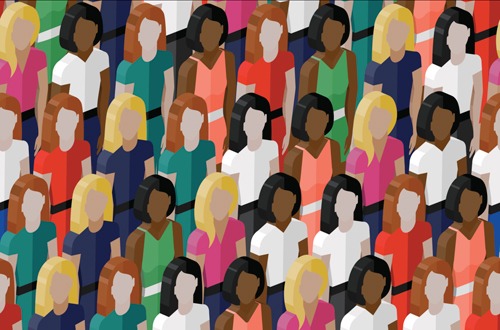
As we celebrated International Women’s Day earlier this week my news feed across all my social media platforms became alive with visuals with beautiful quotes from women. At this juncture I would like to wish all women Yudala.
Yudala is a universal language; it is not specific to any ethnic region or locality. Yudala is the new cool. It is a new mode of expressing felicitations. Yudala is a song from one of my favourite artists from Nigeria, Iyanya.
His song speaks to the sentiments of what the day is supposed to be – a celebration of womanhood. Also on my playlist is a track from MC Chita and Jnr Brown called Voice, sung in the Shona tongue. It speaks to economic inequality.
The song, in millennial lingua speak, speaks to the so many unheard voices of those that cannot participate in the economy, or more importantly, the song speaks to the girl child in the African landscape.
The Africa context
Shining the spotlight on Africa, an analysis of the top 200 businesses on the continent reveals that only 2.5% of the CEOs are women. The female CEOs of ABSA Group, Remgro, Stanbic IBTC, Santam and the Johannesburg Stock Exchange (JSE) are drawn from only two of the 18 countries represented on the list – namely South Africa and Nigeria. In comparison to the rest of the continent, South Africa is doing well with the highest number of female CEOs in Africa.
South Africa, however, still has a merely nominal representation of female executives. Only 4.4% of CEOs across all industries are women and of the 25 largest JSE listed companies, only two have 25% or more director positions held by women.
Nicky Newton-King, the CEO of the JSE is working to change that. Ranked among the top 20 largest stock exchanges in the world, the JSE is not only led and chaired by women, but Mrs King’s executive committee is 72% female. Her board has also achieved gender parity with a 50-50 representation. Despite these achievements, only two women are listed on South Africa’s top 100 CEOs – Mrs King being one of them.
These numbers, when held up against the narrative of Africa Rising suggest a lack of clear incentives for ensuring inclusive advancement of women into leadership positions in corporate Africa. Africa still it would seem says that only male leadership can speak to success.
The above narrative is a somewhat frightening given the fact that Africa is now stepping up in terms of global competitiveness. South Africa is home to Africa’s most sophisticated economy and with a healthy middle class it still finds itself invariably at a loss in terms of reducing the inequalities between women and man.
Pushing participation
Women have, since time immemorial, in a landscape of inequality have used the little resources to their disposal, and found unique ways to participate in the economy. Women have pushed initiatives such as the stokvel, so much so that the banking sector took notice.
What is lacking, however, is taking such initiatives to a macro level and access to tech.
If you look at Mpesa’s penetration you would see that the uptake of Mpesa by women was great because it allowed them an opportunity to participate. This proved that women have a unique take on the economy and how to participate in it. These women use pure SMS facilities, and only recently, WhatsApp, to mobilise their communities to engage and to foster economic transformation.
It is unfortunate that none of these women are there in the hackathons or brain storm sessions deliberating on what the next innovation from Africa will be.
Africa it would seem right now ignores the role that women play in the economy. Is it not now the time to go into those micro economies and interrogate new meanings of economic participation?
About the author: A behavioural economist with a focus on digital strategy, Tavonga Musingarabwi is currently a digital strategist at marketing and advertising agency, Aqua. He has over a decade of experience in both traditional marketing as well as new media marketing. He has worked with many brands pertaining to their Digital presence and sees a future whereby Africa can truly utilize and harness the power of technology. Musingarabwi has also successfully helped South Africa in it’s bid for the Commonwealth Games of 2022.


